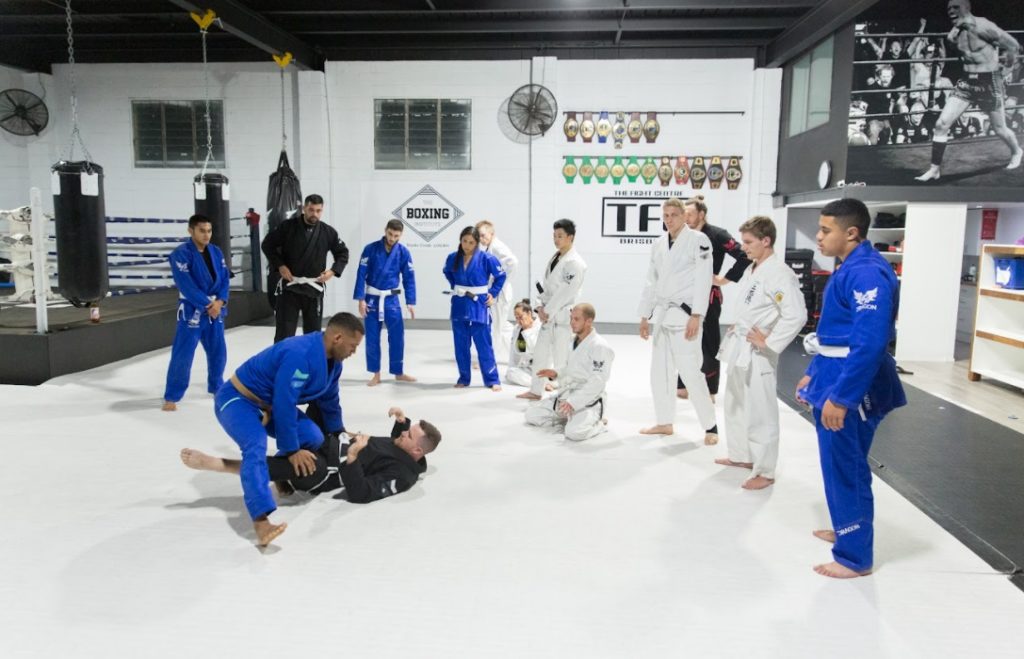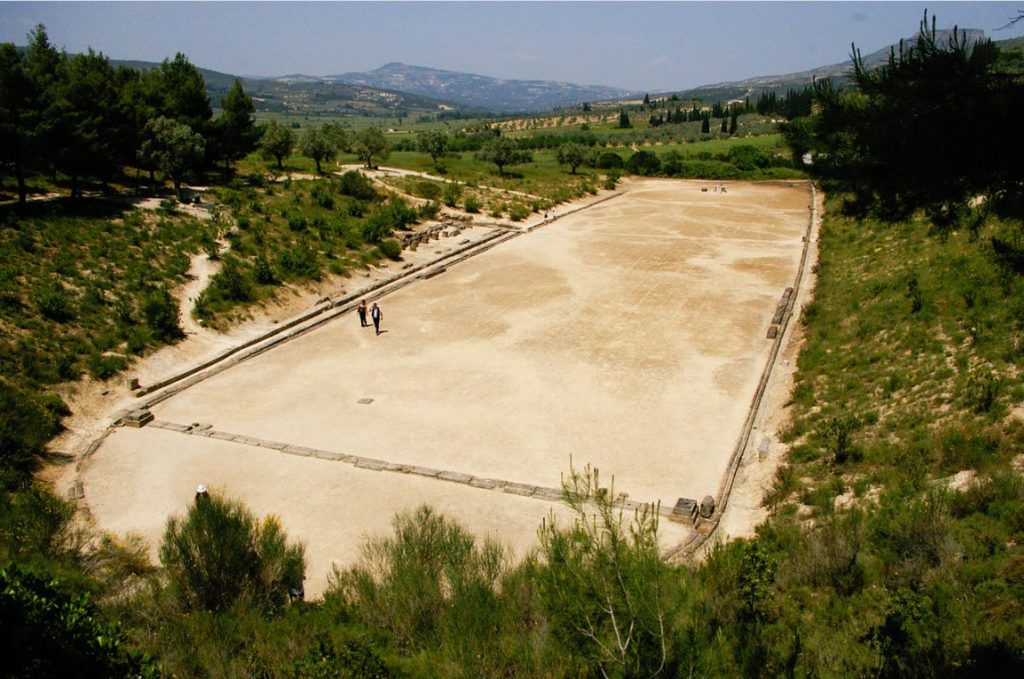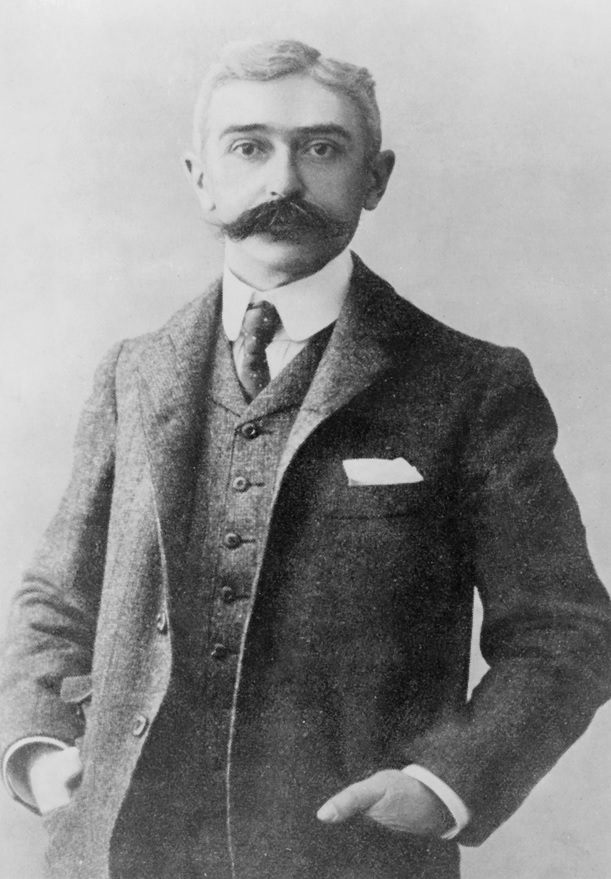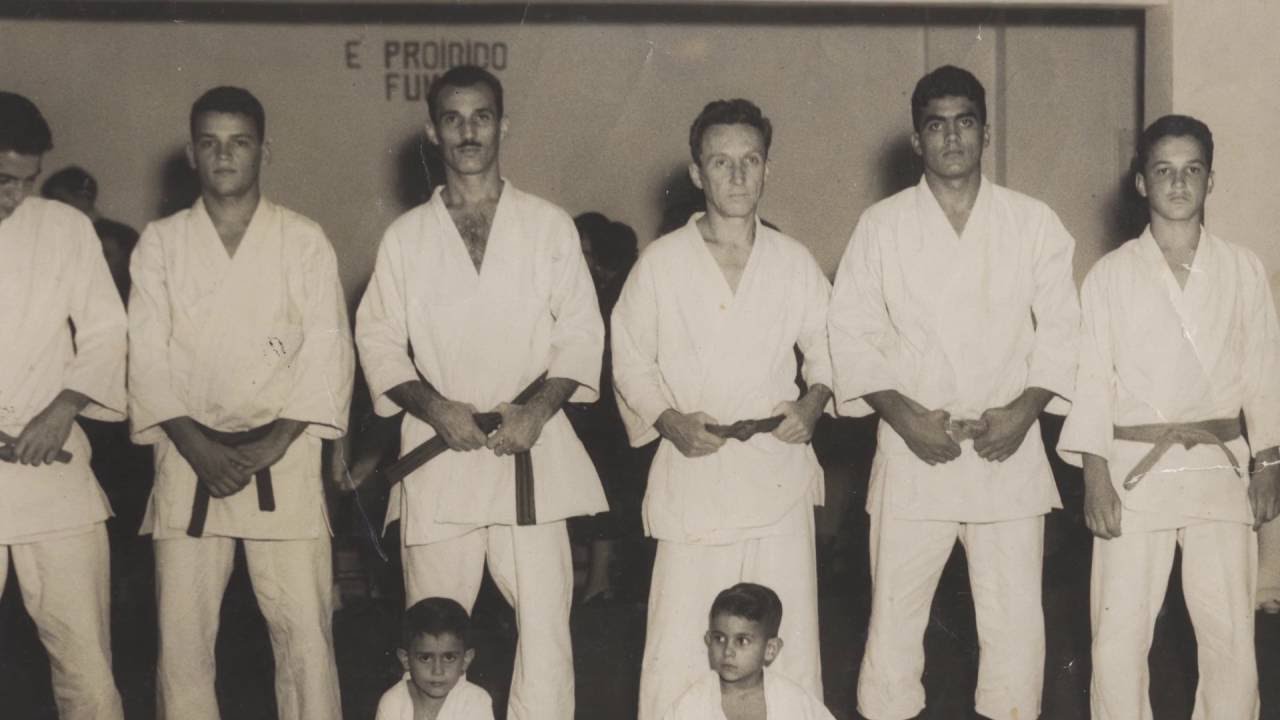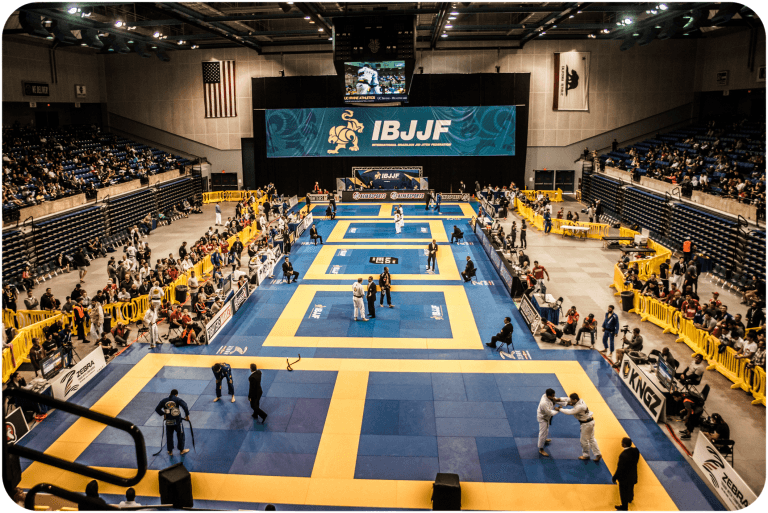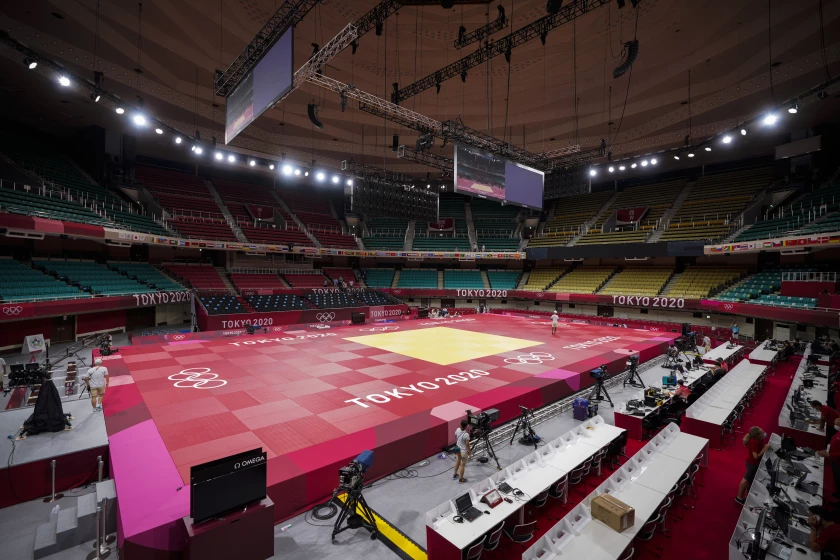If you haven’t heard of the Olympics, you might be living under a rock. After all, it’s only the largest sporting event in the world. Its viewership spans all five continents and averages 3.5 billion. (That’s nearly half of the world population!) With such prestige on a global scale, many sports aspire to join the Olympics, BJJ included.
The Olympics is an event of the highest prestige. Unfortunately, that means getting in on the action isn’t as simple as signing up for it. The IOC has rigid guidelines before recognizing a new sport (or rather the IFs that manage the sport). Not to mention, the IF has to petition to join the Olympics after gaining recognition. The process is so tedious that Muay Thai gained Olympic recognition TEN years after its application! And even now, its fate in the 2024 Olympics is still uncertain.
IF is shorthand for International Sports Federations. The Olympics website describes it as international non-governmental organisations recognised by the International Olympic Committee (IOC) as administering one or more sports at world level.
Regardless of the hurdles, it’s all worth it when a sport actually makes it to the roster. After all, the Olympics serve as a platform for widespread public demonstration. A surge of interest in the featured games often follows. And with it, an abundance of opportunities for the sport.
(That includes annual stipends after their International Federations receive Olympic recognition. Also, the chance to apply for more grants as necessary, even before they actually go on the actual Games.)
Will BJJ be in the Olympics?
BJJ has a strong and steadily growing community across the globe. Whether or not it has an Olympic future has been a topic of interest for many. If you’re wondering the same, here’s our two cents on the matter:
BJJ won’t be going to the Olympics anytime soon. Sad as it may be, it is hardly eligible for application the way it is now.
But what does the future hold for the sport? Perhaps we’re wrong, and we’ll see BJJ in the Olympics sooner rather than later. But what will it take for BJJ to become an Olympic sport? This article will explore a brief history of the Olympics, why BJJ isn’t in the Olympics (yet), and why it should be.
-
The Ancient Olympics
When talking about the roots of Olympism, we have to go back to the history of the Olympics in Greece. The ancient Games in Olympia began in 776 BC and ended in 394 AD, about 1500 years before its modern revival. Or at least, that’s what some historians believe. The truth is that there’s been some debate about when it actually started. Some literary and archeological findings show it may have begun as early as the 10th or 9th century BC.
There was only one athletic event for the first 13 Olympics: Stadion. Stadion was a foot race spanning the length of its venue (and namesake), the Stadion. (If you haven’t guessed yet, this is also where the word stadium came from.)
Olympic history fact: The first-ever winner of the Olympics was a cook named Coroebos (or Koroibos) from the city of Elis. He went up against 280 athletes from 12 city-states.
As more Olympic games happened later on, more events came to the roster. Some combat arts even made it into the mix: pygmachia and pankration. Pygmachia was the name they used for ancient Greek boxing, while Pankration was an empty-hand submission system.
The Olympics died when Rome conquered Greece.
Eventually, the quadrennial observation of the Olympics came to a halt. The Catholic Roman emperor Theodosius I outlawed pagan celebrations. And so ended the Olympics, 12 centuries since it began.
-
The Modern Olympics
As for the history of the modern Olympic Games, we have to take a look back around the end of the 1890s. That was when the games made a comeback, 1500 years after it ended.
The Baron Pierre de Coubertin of France was an advocate of Physical Education. He found inspiration to revive the ancient games. Receiving positive feedback, he proposed it at the Union des Sports Athlétiques in 1892. Sure enough, the Union voted in favour. And so, the International Olympic Committee (IOC) instituted itself two years later.
Fifteen centuries later, the Olympics came back to life.
The first modern Olympic Games in 1896 featured 43 events and athletes from 14 nations. These events included wrestling, fencing, track and field, and gymnastics. More of them came as the years passed.
Eventually, even seasonal sports made it into the mix. That’s how the Olympics became two parts: the Winter Olympics and the Summer Olympics. Quite simply, the Winter Olympics featured events that required ice and snow. (E.g. figure skating, ice hockey, and snowboarding.) The Summer Olympics is everything else.
-
Martial Arts in the Modern Olympics
Martial arts have been in the modern Olympics since it began. The 1896 Olympics featured nine sports, including Wrestling and Fencing. Today, there are six martial arts we can officially call Olympic Sports. Wrestling and Fencing are on the list. There’s also Judo, Karate, Taekwondo, and Boxing.
Three more martial arts systems may soon join the mix. The IOC moved to recognize Muay Thai, Kickboxing, and Sambo. Only recently has the IOC granted them recognition. In the best case scenario, we’ll be seeing these sports in Paris 2024. Realistically, however, it probably won’t be until Los Angeles 2028. It might even be later.
Note that what the IOC granted recognition for is not the sports themselves. Instead, it’s for the IFs running these sports. This brings us to a major point in this article: the IOC values structure (i.e. the Olympic Movement) above all else.
-
The Olympic Movement
The IOC’s official website defines the Olympic Movement as such:
The Olympic Movement is the concerted, organised, universal and permanent, action carried out under the supreme authority of the IOC, of all individuals and entities who are inspired by the values of Olympism.
If you’re wondering what these values are, it’s excellence, friendship, and respect.
The organised movement of the Olympics is thanks to its three main constituents:
- The International Olympic Committee (IOC) leads the Olympic Movement.
- International Federations (IFs) for each sport oversee the development of each sport under the Olympic Charter.
- National Olympic Committees promote the Olympic Movement in their respective nations.
Having an International Federation doesn’t automatically qualify a sport for Olympic recognition. Men must widely practise it 75+ countries and women in 40+ countries on at least three continents.
And even then, recognition from IOC doesn’t mean that the Olympics will feature the sport. After recognition, the IF must then petition for Olympic inclusion. Only after then can we finally see it in the Olympics.
Why is this all important? Well, you need to know this to understand the following points:
-
Why BJJ is not in the Olympics
When we talk about the IOC giving recognition, it’s not the sports themselves. Instead, it’s to the IFs running them. These IFs are non-governmental organizations (NGO) that national federations of sports affiliate with. Together, they maintain the integrity of their sport on both the national and international levels.
So, why is this relevant?
Why isn’t BJJ in the Olympics? The main reason is that it doesn’t have a recognized International Federation. And if there aren’t any changes soon, chances are it won’t be in the Olympics for a while yet.
It can’t even apply because it doesn’t have a qualified International Federation at all.
Not even the biggest international BJJ federation in the world qualifies
Well, sure. The International Brazilian Jiu-Jitsu Federation runs BJJ on an international level. It’s the largest organization there is. And it’s evident that the IBJJF rules dominate the bigger promotions. Come to think about it, the IBJJF does maintain the integrity of the sport on the international level. When you look at it, all’s well and good.
However, there is a major catch:
-
The IBJJF is not an NGO
…and therein, the problem lies.
BJJ practitioners are well acquainted with the Gracie family name. Rightly so, since BJJ began with the Gracies in the first place. But the thing is that the IBJJF is a private for-profit company. And where profit is involved, so increases the risk of the Olympic Movement’s precious integrity crumbling.
But let’s set that aside for the sake of pondering. Could BJJ make it to the Olympics if there were a qualified International Federation? Well, people have conflicting opinions about the next point.
-
BJJ might not be marketable enough
BJJ is a practitioner sport, not a spectator sport.
The thing about the gentle art of BJJ is that it’s… well, ‘gentle’. While competitive BJJ can be anything but gentle, it can seem that way when viewing with an untrained eye. There’s no high-intensity flurry of strikes where the crowd roars with every blow that lands. It’s not apparent when players get points or penalties unless you’re familiar with the rules of the game.
Since it is a highly technical sport, it can be pretty hard for viewers to understand. Being on top doesn’t necessarily mean being dominant. A player can get a submission from the bottom just as well as from any other position.
It’s not like the striking arts, which are very straightforward. You hit your opponent, and you get points. You get hit, your opponent gets points.
And another thing: there are way too many different rulesets.
There are many factions in BJJ, and each of them have rules of their own. Players’ fighting styles depend on what ruleset they usually follow. Some aggressively aim for a submission, while others strategize to win by points. By the time you understand one ruleset, there’s another one that may completely confuse you.
When a sport goes to the Olympics, they get the opportunity to showcase what it’s got. But if it isn’t engaging enough to retain the casual viewers’ attention, what then?
But then again, the IOC recognizes chess. Not being action-packed doesn’t mean being ineligible for recognition. However, recognition doesn’t indicate Olympic inclusion. Take Chess as an example, which has been a recognized sport since 1999. Since then, it went to the 2000 Olympics as an exhibition match and never again.
-
Why BJJ should be in the Olympics
BJJ culture parallels the values of Olympism
The Olympic Movement is IOC’s initiative to build a peaceful and better world. There are three absolute values at its core: excellence, friendship, and respect. Many nations are brought together nn this quadrennial event. Because of it, strangers can compete with a spirit of friendship, solidarity, and fair play.
BJJ is an incredibly inclusive sport that perfectly parallels the values of Olympism. The mats are a place for people of all ages, genders, religions, colours, and social standing to come together. Everyone is equal on the mats. All that matters is that you go with an open mind and a willingness to learn.
It is a sport where you aim to defeat everyone in your way. Yet, contrarily, humility dominates the mats, and embracing defeat is a huge part of the BJJ lifestyle.
Even the best players taste defeat on a regular. After all, the most effective way to grasp a new technique is to experience it firsthand. The only way to grow is to acknowledge that everyone else has something to teach you. So you learn from them (and then you try to beat them).
BJJ is a practice of giving and taking in terms of knowledge and skills. Do it often enough, and you form invaluable connections with your peers. The best part is that this connection expands beyond the mats and into the community.
If this does not embody excellence, friendship, and respect, we don’t know what does. There is so much in BJJ that runs parallel to the Olympic Movement. If there’s one martial art we think absolutely captures the essence of Olympism, it’s BJJ.
BJJ demographics match the IOC’s target audience
Times have changed, and the way people consume media has evolved. There are many options available now. As such, there’s no guarantee that the Olympics will be the viewers’ first choice. As such, the IOC is determined not to fall behind the many other big players in the sporting industry.
Instead of waiting for the youth to come to the IOC, the IOC wants to take sports to them. This is why it places great importance on current trends, particularly on what appeals to millennials. (Surfing and skateboarding got onto the roster because of massive audience interest.)
BJJ may be a fairly young sport, but it has garnered a following in many countries across the globe. Since it is one of the core arts in MMA, the ever-rising fame of the UFC brings BJJ to the mainstream as well. Gyms have popped up everywhere, and more people are coming to learn that anyone can do it. And once they give it a try… well, it’s only a matter of time before they go down the rabbit hole.
The sport will only continue to grow as the years pass, and with it, so will its fanbase. This may be something the IOC may be interested in taking advantage of.
-
Here are the possibilities
BJJ doesn’t have organizations eligible to apply for the IOC’s recognition. However, that doesn’t mean that it doesn’t have a shot at going to the Olympics. There are actually two federations that can bring BJJ to the Olympic platform. These are the United World Wrestling Federation and the Ju-Jitsu International Federation.
These federations aren’t exactly for BJJ, but they’re our best chance at the moment.
While neither of them is for BJJ in particular, they have integrated it into their sports catalogue. If they wanted to bring BJJ to the Olympics, it would have a serious shot. After all, the IOC already recognizes these organizations.
Both of them incorporated BJJ in some form, though it does follow slightly different rules and go by new names. The JJIF calls it Newaza. It doesn’t function quite like Judo’s Newaza, but we can see where the confusion might come from. Anyway, JJIF’s Newaza doesn’t follow belt categories, so all practitioners follow black belt BJJ rules.
On the other hand, the UWW calls it Grappling Gi. Most of the moves the BJJ allows are legal in Grappling Gi, though there are some differences in point scoring. If BJJ has any chance of getting its foot in the Olympic door, it’s the UWW. After all, the UWW aims for grappling to reach the Summer Olympics as soon as possible.
And with grappling already in the IOC’s plan for the World Cup and Continental Games, the gears are already in motion.
-
What going to the Olympics means for BJJ
In the case where BJJ does make it to the Olympics, what would it mean for the sport? Going on a massive international platform unlocks a whole new world of possibilities for BJJ. More sponsorship deals for athletes and promotions alike. Greater media coverage. A lot more gyms popping up because of increased public interest.
At the same time, there will be a lot of changes to the way BJJ is now. Professor Vicente “VC” Cavalcanti predicts that aside from the opportunities that’ll come in, the rules of BJJ will definitely have to change. And we agree. After all, the IOC is duty-bound to make its events more exciting. It may take an existing ruleset and alter it or even create a new one.
Whatever rules Olympics BJJ will follow will become the new international standard. Teams will redirect their path towards the new standard. BJJ may become more restrictive as a result. The diversity of rulesets, competitions, and playstyles will definitely suffer. To what extent? It’s hard to tell.


